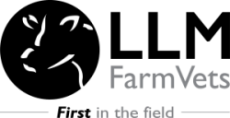Fly Parasites & Control
For a number of years we have been utilising fly parasites as part of our fly control protocols to build a sustainable reduction in fly population on farm.
Biting and nuisance flies cause all sorts of problems during the summer, especially on dairy farms and more intensive systems. Issues include summer mastitis and New Forest Eye, as well as reduced grazing time through increased cow movement and subsequent reduced yield.
Fly parasites enable you, as livestock farmers, to take a proactive, cost-effective approach to issues caused by biting and nuisance flies In turn, you can reduce insecticidal and antibiotic use, whilst improving potential herd performance during the spring and summer months. It is a long term approach to reducing your overall fly population. Therefore we do encourage that you utilise in conjunction with other traditional methods of fly control for the first few years.
We have had some brilliant results on farm from the use of fly parasites. Some farms have now seen such a reduction in fly population, that they have now reduced the number of fly parasite bags used.
“The process of using the flies was really simple and over the years we have reaped the benefits of a reduced fly population. The stress level of the cows (and workers!) has reduced, we have a better working environment and in my opinion the cows are happier and this can only contribute to better milk yield and immune function during the summer months.”
Frequently Asked Questions
What are fly parasites?
Fly parasites are parasitic wasps, but they do not retain the characteristics that the term “wasp” brings to mind. They are very small insects, approximately 2mm in length and they only eat nuisance flies.
How do fly parasites work?
We call our fly parasites “Friendly Flies” because they cause no harm to livestock, humans or other beneficial insects.
Female Friendly Flies pierce the nuisance fly maggot pupae. They can lay up to 350 eggs per day and on hatching, the parasites subsequently eat the maggots. Over time, this cycle naturally reduces the nuisance fly population. They only parasitize the specific nuisance fly species.
Where should you spread fly parasites?
Fly parasites should be spread in areas where the breeding fly population is. For example in standing muck areas that are not often disturbed, such as; The edge of a slurry pit, straw yards, corners of cubicle sheds and additional areas of standing manure
To make this process easier, we offer a free VetTech visit when you first start using fly parasites to help identify the best places to distribute.

